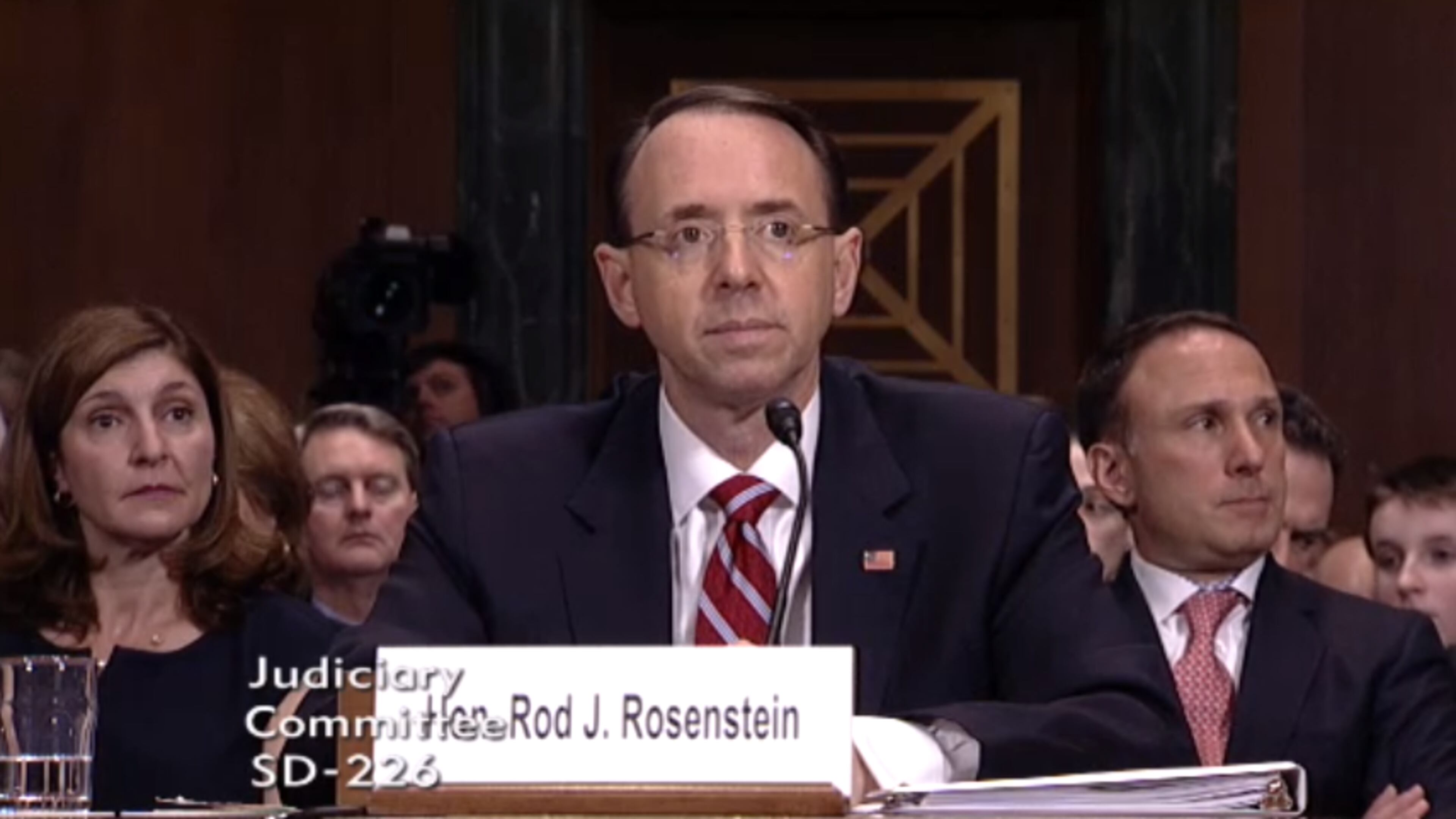Mueller probe over, Rod Rosenstein to leave Justice post

With the investigation of Special Counsel Robert Mueller now finished, Deputy U.S. Attorney General Rod Rosenstein submitted his resignation on Monday, capping a tumultuous two years in which Rosenstein oversaw the controversial investigation into Russian interference in the 2016 elections, while he was buffeted by lawmakers in both parties, and sometimes by the President himself.
"Our nation is safer, our elections are more secure, and our citizens are better informed about coverage foreign influence efforts and schemes," Rosenstein wrote in a letter to President Trump.
"I am grateful to you for the opportunity to serve; for the courtesy and humor you often display in our personal conversations," Rosenstein wrote.
His resignation had been rumored for months; it comes eleven days after a redacted version of the Mueller Report was delivered to Capitol Hill, and will be effective on May 11.
NEW: Here's DAG Rosenstein's resignation letter to President Trump submitted this afternoon. He had hoped to leave in mid-February but stuck around to see the Mueller probe through to its conclusion. pic.twitter.com/RoP0ka3CoQ
— Darren Samuelsohn (@dsamuelsohn) April 29, 2019
It was Rosenstein who picked Robert Mueller to be Special Counsel overseeing the Russia investigation, a decision which came soon after President Trump fired FBI Director James Comey in May of 2017.
In the Mueller Report, Rosenstein resisted efforts by the President 'to put out a statement saying that it was Rosenstein's idea to fire Comey.'
According to the Mueller Report, Rosenstein told the President that if forced to hold a news conference about the firing of the FBI chief, that he would 'tell the truth that Comey's firing was not his idea.'
Transcripts of interviews with FBI officials released in recent weeks by Republicans also showed that Rosenstein felt that a memo written about Comey had been wrongly used and characterized by President Trump to argue in favor of Comey's firing.
The Mueller Report said when President Trump was told 'that a Special Counsel had been appointed, the President slumped back in his chair and said, "Oh my God. This is terrible. This is the end of my Presidency.'”
At times, President took out his frustration with the probe on Rosenstein.
“Isn’t Rod therefore totally conflicted?” Mr. Trump wrote last December on Twitter, as he again complained about the appointment of Mueller as Special Counsel.
Republicans still want answers from Rosenstein about whether he had seriously considered wearing a wire to secretly record President and/or invoke the 25th Amendment to oust Mr. Trump in the wake of the firing of Comey.

In closed door testimony, senior FBI officials like James Baker said they heard Rosenstein discuss those plans - including supposedly having the support of two Trump Cabinet members - but that no one regarded it as a serious undertaking.
